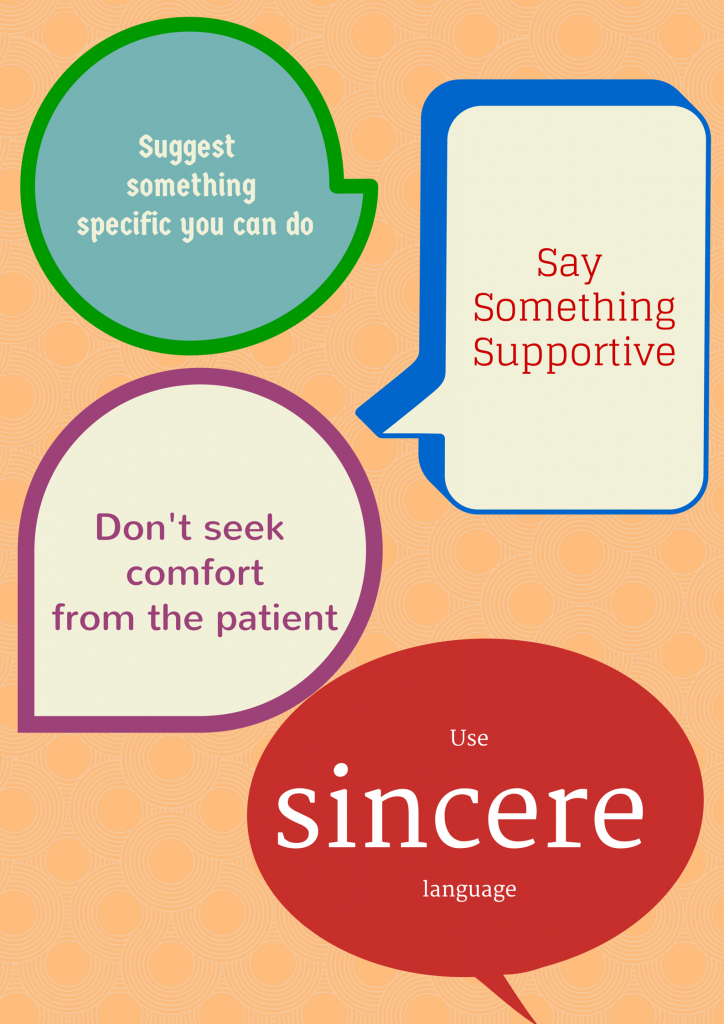Everyone knows someone with cancer or another life-threatening illness, but few of us know how to talk about it. 
Researching my book, Live Full Throttle: Life Lessons From Friends Who Faced Cancer, I interviewed more than 100 people who have faced one of life’s ultimate sinkholes. They told me stories about everything—from how the disease altered the trajectory of their lives to how a cancer diagnosis changes the simple act of human conversation.
Here is what I learned: while we all know someone with cancer or another life-threatening illness, few of us know how to talk about it. Because nobody wants to be “that person” who says the wrong thing, many of us hold back from saying anything at all.
But when friends and family hold back, the unintended consequence for the person with cancer is feeling alone and unsupported.
Six ways to respond when someone tells you about a scary diagnosis
So what exactly should you say when someone reveals a scary diagnosis like cancer? While it’s unrealistic to expect a perfect response, here are some guidelines that will point you in the right direction:
- Say something supportive. You don’t have to be witty or wise, just use genuine and constructive statements. For example, try saying “I’m here for you and always will be,” or “I’ll keep you in my thoughts and prayers.” Then be quiet and see where the conversation goes from there.
- Remember who this person is aside from having cancer. She’s a neighbor, mother or student; he’s a painter, uncle or co-worker. Add the words “with cancer” to the way you think of him or her. This helps you keep the emphasis where it belongs when you communicate.
- Be the comforter —not the one looking for comfort. Don’t expect the patient to comfort you in your sadness or concern over their diagnosis. The patient needs your support, not the other way around. Ask how you can support.
- Suggest something specific you can do. The patient might be reluctant to ask you to clean out his refrigerator or walk her dog, but might be delighted to accept your offer. Other kinds of support might be offering to make a daily phone call at a specific time. Consider scheduling reminders in your calendar to call, email or visit.
- Use sincere language instead of repeating trite advice. For example, don’t say, “Everything will be fine.” That phrase can sound dismissive. Plus, no one knows the future.
- Let the cancer patient take the lead. Listen for cues that tell you what she wants to talk about. Remember, sometimes people don’t want to talk about their diagnosis; they just want to talk about everyday things.
Regardless of what you say aloud, understand that getting a scary diagnosis makes the patient and everyone in their circle of family and friends think about life very differently. It’s a good thing for all of us to consider our own mortality.
We all need to make the most of our time here on Earth. None of us is promised tomorrow.
